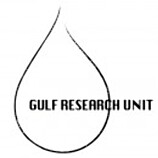
Archive: Gulf Research Blog
Blog articles from 2009 to 2012. The Gulf Research Unit is research programme based at the University of Oslo.
Impact of oil richness for the Norwegian economy
Denne artikkelen er over ti år gammel og kan inneholde utdatert informasjon.
By Halvor Mehlum, Kalle Moene, and Ragnar Torvik
On average the economic performance of resource rich countries has been hampered by their natural resource wealth. Natural resources have in many cases been a curse rather than a blessing. The discovery of oil in the North Sea, however, stimulated productive forces rather than grabber activities partly because of the high quality of institutions and partly because of the technological challenges of oil extraction offshore.
There is evidence that countries with a high quality of institutions turn natural resources to an asset rather than a problem. In countries with good institutions, such as good protection of property rights and little corruption, natural resources seem to contribute to growth. More natural resources provide private agents with productive investment opportunities, in turn creating positive externalities for other agents. With poor protection of property rights and much corruption, however, more natural resources may hamper growth. In such countries with dysfunctional institutions, more natural resources may stimulate predation, rent-seeking and other destructive or non-productive activities, in turn creating negative externalities for the rest of the economy. Hence, we call this theory the curse of institutions. While the growth effect is negative in countries with bad institutions, we show that the growth effect of resource abundance is positive in countries with good institutions. In countries with good institutions there is no resource curse. For Norway, in particular, resource abundance has stimulated growth rather than retarded it.
In addition to the institutional aspects related to rule of law and property rights, a likely reason for Norway’s positive development is the early industrialization and late oil discovery. Moreover, when Norway became oil rich, it already had a long and stable tradition of democratic rule. It also had a well functioning state bureaucracy. All this contrasts with many of the other resource abundant countries in the world today, countries which are neither democratic nor bureaucratically efficient. Wasteful activities were thus held in check by democratic governance, based on broad political representation with checks and balances in civil society.
In the era from 1900 onwards, more and more of the Norway’s natural resources were utilized. This was also an era of increased political participation. The extension of the franchise, and broad geographical and class representation in the political system, created many veto players resisting any attempt of resource grabbing by narrow interest groups. In turn, the industrialization which the resources generated implied a growth in the labor movement, and it was in the interest of this labor movement to promote a political system ensuring that the resource wealth benefited broader groups of the population. Thus, when the oil era came, the institutions of Norway were already well prepared to ensure that also this resource wealth would be to the best of the population. In addition, new institutions and arrangements were created to ensure a sustainable use of the resource wealth.






